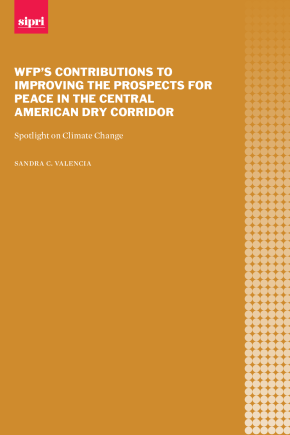WFP’s Contributions to Improving the Prospects for Peace in the Central American Dry Corridor: Spotlight on Climate Change
This report explores the linkages between climate change, food security and conflict in the Central American Dry Corridor region. Specifically, the report analyses how climatic shocks and stresses affect food security and the risk of conflict in the Dry Corridor, through case studies of Guatemala and Honduras. In addition, the research analyses if, and how, the World Food Programme’s (WFP) Food for Assets programmes, which seek to increase resilience, are mitigating conflict risk, and WFP’s role in longer-term peacebuilding efforts against the backdrop of negative climate trends. The research was conducted in a selection of WFP’s intended beneficiary communities considered part of the Dry Corridor in the departments of Chiquimula and Zacapa in Guatemala and in the departments of La Paz and Santa Barbara in Honduras. Two theories of change are proposed for how WFP can improve the prospects for peace and reduce conflict sensitivity risks through its Food for Assets Resilience programming in the Dry Corridor: one related to land tenure and a second related to water governance. To read more specifically about gender in the context of the Central American Dry Corridor, see the annex to the report, which can be downloaded here.
The research was part of a wider knowledge partnership between SIPRI and WFP. The partnership aimed to inform WFP’s potential contributions to improving the prospects for peace and how to address these through WFP’s programming.
1. Introduction
2. Dry Corridor context analysis
3. The Central American Dry Corridor case study
4. Findings

